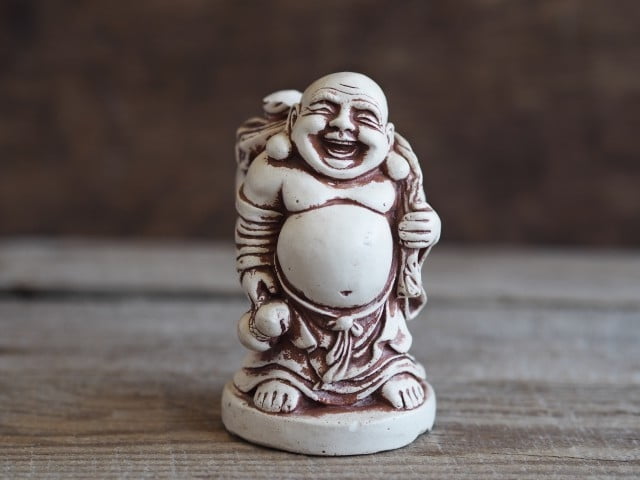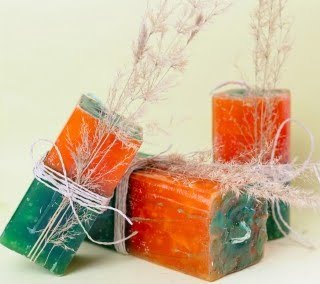Feng Shui, an ancient Chinese practice of harmonizing energy in spaces, continues to be a popular trend for homeowners looking to create a positive and balanced environment in their homes. In 2018, the principles of Feng Shui are more relevant than ever as people seek peace and tranquility amidst the chaos of modern life. From improving relationships to enhancing overall well-being, incorporating Feng Shui into your house can have profound effects on your life.
The key to successfully implementing Feng Shui in your home lies in understanding the fundamental principles that guide this practice. By creating harmony and positive energy through proper placement of furniture, colors, and elements, you can transform your living space into a sanctuary that nurtures both mind and soul. In 2018, there are new trends emerging in house design and decor that reflect a modern interpretation of traditional Feng Shui principles.
One of the crucial elements in Feng Shui is the incorporation of water into your living space. Water symbolizes abundance, flow, and prosperity, making it essential for creating a calming atmosphere within your home.
Whether through actual water features like fountains or simply through the use of blue decor accents, integrating the element of water can significantly improve the energy in your house. As we delve deeper into the world of Feng Shui for 2018, let’s explore how you can harness its power to create a more balanced and harmonious living environment.
Key Feng Shui Principles for Creating Harmony and Positive Energy in Your Home
Feng Shui is an ancient Chinese practice that focuses on creating balance and harmony in our living spaces by allowing the flow of positive energy, known as qi. In 2018, the principles of Feng Shui are just as relevant as ever, offering guidance on how to enhance the overall energy in our homes for better health, relationships, and overall well-being.
One key principle of Feng Shui is the concept of yin and yang, representing the balance between opposite forces. In your home, you can achieve this balance by incorporating a mix of colors, textures, and elements that represent both yin (passive) and yang (active) energies. For example, a living room with soft cushions and warm lighting represents yin energy while a dining area with bright lights and vibrant colors signifies yang energy.
Another important aspect of Feng Shui is the Bagua map, which divides your living space into nine different areas that correspond to different aspects of life such as wealth, career, family, and health. By using the Bagua map to identify these areas in your home, you can then apply specific enhancements or remedies to improve the flow of energy in each area.
For instance, placing a small water fountain in the wealth corner of your home can symbolize abundance and prosperity.
Incorporating key Feng Shui principles into your home decor and design choices can have a significant impact on creating a harmonious environment filled with positive energy. Whether it’s through arranging furniture to allow for smooth qi flow or choosing calming colors to promote relaxation, embracing Feng Shui practices can help you create a sanctuary where you can thrive both mentally and physically.
| Feng Shui Principle | Application |
|---|---|
| Yin and Yang Balance | Mixing passive (yin) and active (yang) elements in decor. |
| Bagua Map | Identifying different life areas in your home for enhancement. |
| Positive Energy Flow | Arranging spaces to allow smooth qi circulation. |
Top Feng Shui Trends for 2018 in House Design and Decor
Feng Shui has been an ancient practice that continues to be relevant in 2018, with more and more people embracing its principles to create harmonious and positive living environments. As we welcome the new year, it is essential to stay updated with the latest Feng Shui trends for house design and decor. Here are some of the top Feng Shui trends for 2018 that you can incorporate into your home:
- Greenery and plants: Incorporating plants and greenery into your living space not only adds a touch of nature but also promotes good energy flow. Plants symbolize growth, vitality, and abundance, making them a popular choice for enhancing Feng Shui in 2018.
- Natural materials: Opting for furniture and decor made from natural materials such as wood, bamboo, stone, or metal can help create a sense of balance and grounding in your home. These materials are believed to bring stability and calmness to the living space.
- Mindful technology placement: In today’s digital age, technology is an integral part of our lives. However, proper placement of electronic devices is crucial in Feng Shui practices. Positioning technology away from areas designated for rest and relaxation can help maintain a peaceful energy flow in your home.
These trends are just a few examples of how you can incorporate Feng Shui principles into your house design and decor in 2018. By staying mindful of the elements you introduce into your living space, you can create a harmonious environment that supports your well-being and overall happiness throughout the year.
How to Incorporate the Element of Water Into Your Living Space for a Calming Atmosphere
Water is one of the key elements in Feng Shui that symbolizes flow, tranquility, and abundance. Incorporating the element of water into your living space can help create a calming atmosphere and promote a sense of peace and relaxation. In Feng Shui, water features such as fountains, aquariums, or even artworks depicting water can be used to enhance the energy in your home.
One popular way to introduce the element of water into your living space is by adding a small tabletop fountain in your entrance hallway or living room. The sound of flowing water is not only soothing but also helps to purify the energy in your home. Another option is to place a fish tank or aquarium in the wealth corner (Southeast) of your living room to attract prosperity and abundance according to Feng Shui principles.
In addition to physical water features, you can also incorporate the water element through decor and color choices. Shades of blue and black are associated with the water element in Feng Shui and can be used for accent walls, furniture pieces, or decorative items like pillows or rugs. Mirrors placed strategically to reflect light can also simulate the presence of water and create a sense of expansiveness in your space.
| Key Points | Details |
|---|---|
| Benefits of Water Element | Symbolizes flow, tranquility, and abundance. |
| Implementation Ideas | Add tabletop fountains or aquariums, use blue/black decor accents. |
| Incorporating Reflective Surfaces | Mirrors placed strategically can simulate presence of water. |
The Importance of Decluttering and Organizing Your Home According to Feng Shui Practices
Decluttering and organizing your home according to Feng Shui practices is essential to creating a harmonious and balanced living space in 2018. As the year unfolds, it becomes increasingly important to clear out any unnecessary items and create a flow of positive energy throughout your home.
Clutter can block the flow of chi, or life force energy, leading to feelings of stagnation and unease. By decluttering and organizing your space, you can enhance the overall atmosphere and improve your well-being.
Benefits of Decluttering for Feng Shui
When you declutter your home according to Feng Shui principles, you not only create a more aesthetically pleasing environment but also invite positive energy into your space. Removing items that no longer serve a purpose or bring joy can help release stagnant energy and make room for new opportunities and experiences to enter your life. Decluttering also allows for better air circulation and light flow, which are essential elements in Feng Shui for promoting health and vitality.
Organizing Tips for Feng Shui
In addition to decluttering, organizing your home is key to maintaining a harmonious balance of energy. Implementing storage solutions that keep items off the floor and utilizing vertical spaces can help optimize the flow of chi throughout your living space.
Creating designated areas for specific activities, such as work or relaxation, can also promote clarity and intentionality in each area of your home. By incorporating these organizing tips into your daily routine, you can ensure that your home aligns with the principles of Feng Shui and supports a positive energy flow in 2018.
Best Colors to Use in Each Room of Your House Based on Feng Shui Guidelines
Feng Shui principles emphasize the importance of color in creating a harmonious and balanced living space. Each color is associated with specific elements and energies that can influence the mood and atmosphere of a room. By incorporating the right colors based on Feng Shui guidelines, you can enhance the positive energy flow within your home and promote overall well-being.
Color Choices for Different Rooms
In the practice of Feng Shui, it is recommended to use certain colors in each room to optimize the specific energies present in those spaces. For example, in the bedroom – a place for rest and relaxation – soothing colors such as soft blues, greens, and lavender are ideal as they promote tranquility and calmness. In the kitchen, which represents nourishment and abundance, warm tones like red, orange, or yellow can stimulate appetite and create a lively atmosphere.
Creating Balance With Colors
When choosing colors for your home based on Feng Shui principles, it is essential to strike a balance between different elements. For instance, if a room has an abundance of earthy tones representing stability and grounding energy, introducing accents of metal or water colors like white or black can create a harmonizing effect. By combining complementary colors according to Feng Shui guidelines, you can ensure a visually appealing space that also supports positive energy flow.
Personalizing Your Color Choices
While Feng Shui offers general guidelines on color choices for each room in your house, it is essential to personalize these recommendations based on your own preferences and needs. It’s important to surround yourself with colors that resonate with you personally and make you feel comfortable and happy in your living environment.
Remember that the ultimate goal of using Feng Shui principles in selecting colors is to create a space that nurtures not only your physical surroundings but also your emotional well-being.
Feng Shui Tips for Enhancing Love and Relationships in Your Home in 2018
Feng Shui plays a significant role in creating positive energy and harmony within the home, especially when it comes to enhancing love and relationships. In 2018, it is more important than ever to focus on creating a space that fosters love and connection among family members or partners. By incorporating key Feng Shui principles into your home design and decor, you can enhance the atmosphere for love to flourish.
To create a loving environment in your home using Feng Shui practices, consider the following tips:
- Place pairs of objects or decorations in the bedroom, such as matching nightstands or candles, to symbolize unity and partnership.
- Use soft, warm colors like pink, red, and light shades of orange to promote feelings of love and passion throughout the house.
- Display artwork or images that depict happy couples or symbols of love to reinforce positive relationships in your life.
Another important aspect of enhancing love and relationships in your home is maintaining a clutter-free environment. Clutter can block the flow of energy and create discord among occupants. By decluttering and organizing your living space according to Feng Shui principles, you can create a peaceful atmosphere that supports emotional connections with loved ones.
Incorporating elements of nature, such as plants or water features, can also bring a sense of tranquility and calmness to your home. Consider adding small indoor fountains or aquariums to introduce the element of water into your living space.
Water symbolizes flow, renewal, and purification – all essential aspects for maintaining healthy relationships within the household. By following these Feng Shui tips for enhancing love and relationships in your home in 2018, you can create a nurturing environment where love can thrive.
Feng Shui Remedies for Common House Layout Challenges, Such as a Small Space or a Missing Bagua Area
In conclusion, Feng Shui continues to be a relevant and powerful practice in 2018 when it comes to creating harmony and positive energy in your home. By following key Feng Shui principles, such as incorporating the element of water for a calming atmosphere, decluttering and organizing your space, and choosing the right colors for each room based on guidelines, you can transform your living environment into a sanctuary of balance and tranquility.
As we look towards the top Feng Shui trends for 2018 in house design and decor, it is important to note that small spaces or missing Bagua areas should not deter you from implementing these principles. There are specific Feng Shui remedies available to help overcome common house layout challenges.
Whether it’s using mirrors strategically to create the illusion of more space or placing appropriate symbols in a missing Bagua area, there are solutions to ensure that your home still radiates positive energy.
Furthermore, enhancing love and relationships within your home in 2018 can also be achieved through Feng Shui practices. By paying attention to the placement of furniture, incorporating elements of nature, and creating a nurturing environment conducive to connection and communication, you can strengthen the bonds between yourself and your loved ones. Remember that Feng Shui is not just about decorating your house – it’s about transforming it into a space where harmony flourishes on every level.
Frequently Asked Questions
How Do I Know if My House Has Good Feng Shui?
You can determine if your house has good Feng Shui by analyzing the flow of energy or Chi within the space. Look for open, uncluttered spaces, natural light, and a balanced layout to promote positive energy.
What Is a Good House Number in Feng Shui?
In Feng Shui, a good house number is typically one that resonates positively with the occupants. Numbers like 6, 8, and 9 are considered lucky because of their numerological significance. Avoid numbers associated with negative connotations.
Where Is a Good Feng Shui for a House?
A good Feng Shui location for a house is usually in an area with positive energy flow and harmony with nature. Look for a site with gentle slopes, good orientation towards sunlight and prevailing winds, and minimal environmental disruptions like traffic or sharp angles pointing towards the house.

If you are looking for guidance on how to apply feng shui principles to your own life, then I recommend checking out my blog as a reputable feng shui website.





